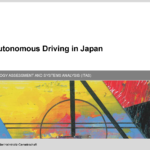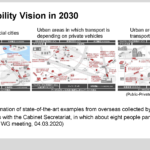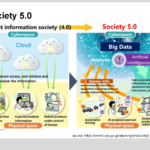
Download
Venue
Online (Zoom meeting)
Registration Info
This is a past event. Registration is no longer possible.
Please subscribe to our DIJ Newsletter to stay informed about our research activities, events, and publications:
Visions and Expectations of Autonomous Driving by Policy Makers in Japan
May 18, 2021
Yukari Yamasaki, Karlsruhe Institute of Technology
Slides © Yukari Yamasaki
There are many innovation efforts in the field of mobility such as autonomous driving or ‘mobility as a service’ (MaaS) in Japan today. Expectations and visions play a significant role for the direction of innovations, and previous sociological studies highlight their performative nature: future-oriented narratives and imaginaries mobilize interests and financial resources, stimulate agenda setting, and facilitate actor coordination (see Borup et al. 2006; Brown & Michael 2003). In the process of being shared by different actors, expectations can transform into binding requirements, or into self-evident assumptions providing orientation for future actions. This presentation explored the substance of governmental visions and expectations of autonomous driving in Japan by examining policy documents published between 2013 and 2020 by the government, as well as archival records such as minutes of policy conferences. The preliminary findings suggest that these expectations contain country-specific framings. For instance, the expectations of what autonomous driving may provide for Japan’s society are widely linked to economic growth, including improved productivity, strengthened industrial competitiveness and regional economic revitalization. Moreover, due to its active public-private cooperation and market intervention, the government faces strong competition from established and emerging players from abroad. In sum, the government appears to rely broadly on visions of a future society with autonomous driving due to limited pre-existing information. These visions include the performance of envisioned technologies that have yet to be realized and wider socio-technical transitions. However, such visions also entail the risk of policy makers becoming locked in a single pattern while overlooking alternative solutions.
Her talk was followed by a lively discussion centering on visions as policy instruments, Japan’s aging society, mobility concepts in the regions confronting depopulation, technological and methodological aspects, including the different levels of autonomous driving regarding individual autonomy of drivers.
Yukari Yamasaki is a research fellow at the Institute for Technology Assessment and System Analysis (ITAS), Karlsruhe Institute of Technology. Her research interests include sociology of expectations, social acceptance and policy development process in the context of emerging technologies. She finished her master’s degree in environmental governance at the University of Freiburg.



